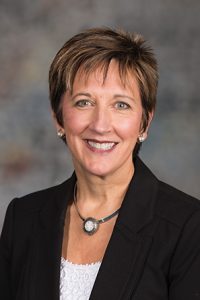Whiteclay public health task force advanced
Lawmakers gave first-round approval March 9 to a bill that would create a special task force to research the public health implications of alcohol sales on the Whiteclay community.

The unincorporated village of Whiteclay, Nebraska is home to four liquor stores despite having a population of only 11 people. Although alcohol is banned on the Pine Ridge Reservation, a large number of tribal members travel the two miles across the South Dakota border to patronize Whiteclay’s liquor stores.
High rates of alcoholism, fetal alcohol syndrome and poverty among members of Pine Ridge have combined to create a public health emergency, said Lincoln Sen. Patty Pansing Brooks.
She introduced LB407 to examine the impact of alcohol sales in Whiteclay and its surrounding communities and make recommendations to the Legislature on how to solve the economic and social issues facing the area. Members of the task force would collect, examine and analyze data on fetal alcohol syndrome rates, access to treatment services and the risk of alcoholism for children raised in the area.
Pansing Brooks said the four stores in Whiteclay sell 3.5 million cans of high-alcohol malt liquor annually. Inaction by the state is affecting people of all ages, she said, adding that 25 percent of all babies born on the reservation suffer from fetal alcohol syndrome.
“Both our actions and inactions in Nebraska are having devastating effects on the people of Pine Ridge,” she said. “We have to help the people who are being harmed by this public health emergency and we must not continue turning a blind eye to this vulnerable population.”
Gordon Sen. Tom Brewer supported the bill. He said many of the surrounding communities do not want to see the alcohol stores in Whiteclay shut down because it could cause the problem to spread to their area. An entire generation has been lost to alcoholism and another is in the process of being lost if the Legislature fails to act, Brewer said.
“We’re poisoning a group of people that we’ve forced onto a piece of land and we’re not taking action because the problem could spread to surrounding communities,” he said. “Ignoring the problem and ignoring the people and just accepting it as inevitable is not the right answer.”
Sen. John Lowe of Kearney also supported the bill, saying concern for the state’s people should outweigh any concerns for the rights of small business owners.
“It’s up to us to take a stand and make that decision that business is not more important than our people,” he said.
An Executive Board amendment, adopted 45-0, changed the proposed membership of the task force to include only legislative members. As amended, the task force would include the chairpersons of the Legislature’s State-Tribal Relations, Health and Human Services, Appropriations and Judiciary committees. A second additional member of the State-Tribal Relations Committee also would serve on the task force.
Pansing Brooks introduced another amendment, adopted 27-10, that further removed representatives from the state Department of Health and Human Services and Department of Economic Development that were initially proposed as non-voting, ex officio members of the task force. She said she did so reluctantly, noting that both departments asked to be excluded.
“I know there are many good people in both departments who could bring their expertise to this issue,” Pansing Brooks said, but she acknowledged that the removal of the two representatives would eliminate the bill’s $9,500 cost.
Senators advanced the bill to select file on a 42-0 vote.


